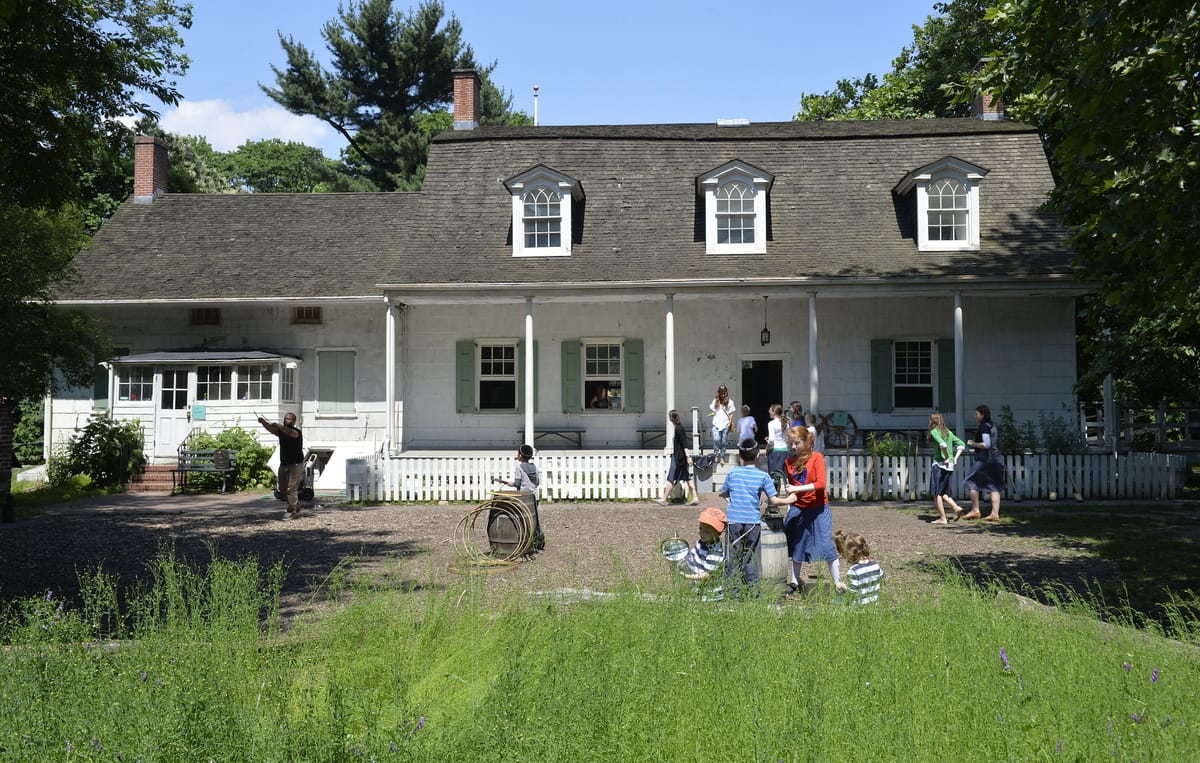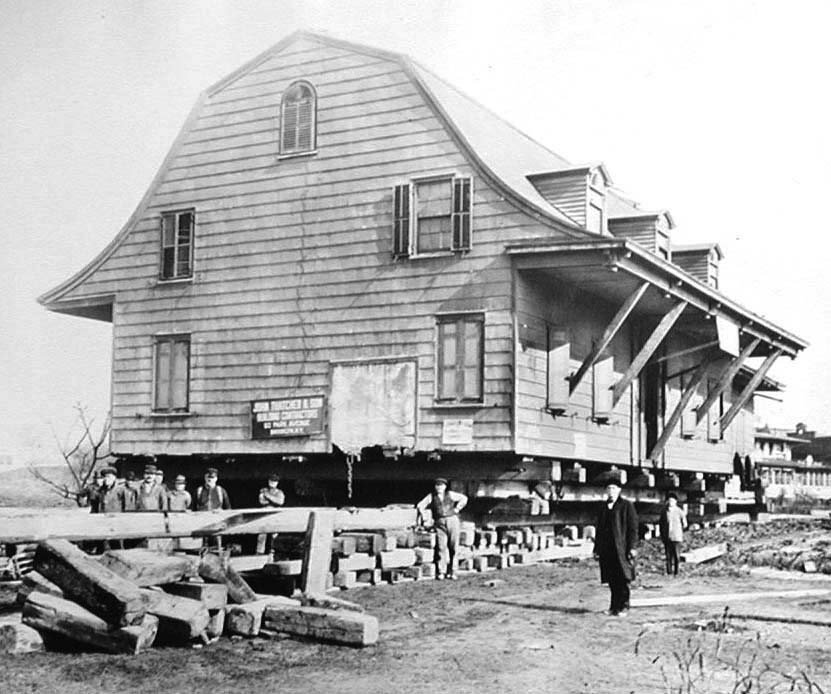Prospect Park Alliance Kicks Off Restoration of Lefferts Historic House, Unveils “Juneteenth Way” Designation

The Lefferts Historic House in 2014. (Image: Paul Martinka/Prospect Park Alliance)
A 238-year-old structure in Brooklyn’s backyard is getting an update, along with installations intended to recognize Brooklyn’s African and African-American history.
The Prospect Park Alliance, the nonprofit that oversees the park, joined city Parks Department leaders and local elected officials today to celebrate the start of a restoration process for the park’s Lefferts Historic House, a landmarked 18th-century farmhouse that features a working garden and historical exhibits.
The $2.5 million project, funded by the City Council’s Brooklyn Delegation, includes plans for a new roof, a restored building exterior, and repairs to paths and drainage surrounding the building, which is located at the park’s eastern edge. The restoration is slated to be completed by the fall of 2022.
The house was once part of a homestead that relied on labor from enslaved Africans, and the Alliance says it’s working on a “re-envisioning” of the museum's programming to focus more on the homestead as a historic site of slavery, and on telling the story of the Africans and Native Americans who lived and worked on the land.
"Lefferts Historic House is located at the nexus of Prospect Park and the Flatbush community, and our vision in terms of its restoration is to rethink its mission and vision to make it better reflect the history and culture of our community," said Sue Donoghue, the Alliance’s President.
As part of that effort, the Alliance also announced that the pathway across from the house has been designated "Juneteenth Way,” in recognition of the June 19th holiday commemorating the end of slavery in the United States. President Joe Biden signed legislation yesterday establishing Juneteenth as a federal holiday.
A stretch of benches along the walkway were painted with the colors of the pan-African flag, and interpretive signage was installed. The Alliance and NYC Parks say they plan to rename the area after a celebrated Black community member next year as part of the NYC Parks Renaming Project.
“It is fitting that this momentous occasion would fall on the eve of Juneteenth," said Parks Commissioner Mitchell J. Silver. "We hope that collectively we can reflect and acknowledge the history of this site as a former slave property.”
The nonprofit also unveiled a new photo installation from Brooklyn photographer Jamel Shabazz on the construction fencing surrounding the house.
Entitled "Prospect Park: My Oasis in Brooklyn," it features images of the park and the people who use it captured by the veteran photographer across decades of work. The installation, presented in partnership with the non-profit Photoville, is on view through December 1st.
The Lefferts Historic House was named after the Dutch colonial Lefferts family, who resided in the town of Flatbush beginning in the 1600s. The house, originally located at 563 Flatbush Avenue near Maple Street, was part of a farmstead where enslaved Africans worked the land to produce crops.
The original house burned down in 1776 during the Battle of Brooklyn, and was rebuilt around 1783. The 1800 census showed 12 enslaved African residents at the farmstead.

The Lefferts family began to free enslaved Africans in 1824, and after slavery was legally abolished in New York State three years later, most of their farmland was rented to tenant farmers. The family sold the farmland to developers at the end of the 17th century, and the house was moved to the park by the City in 1918.




